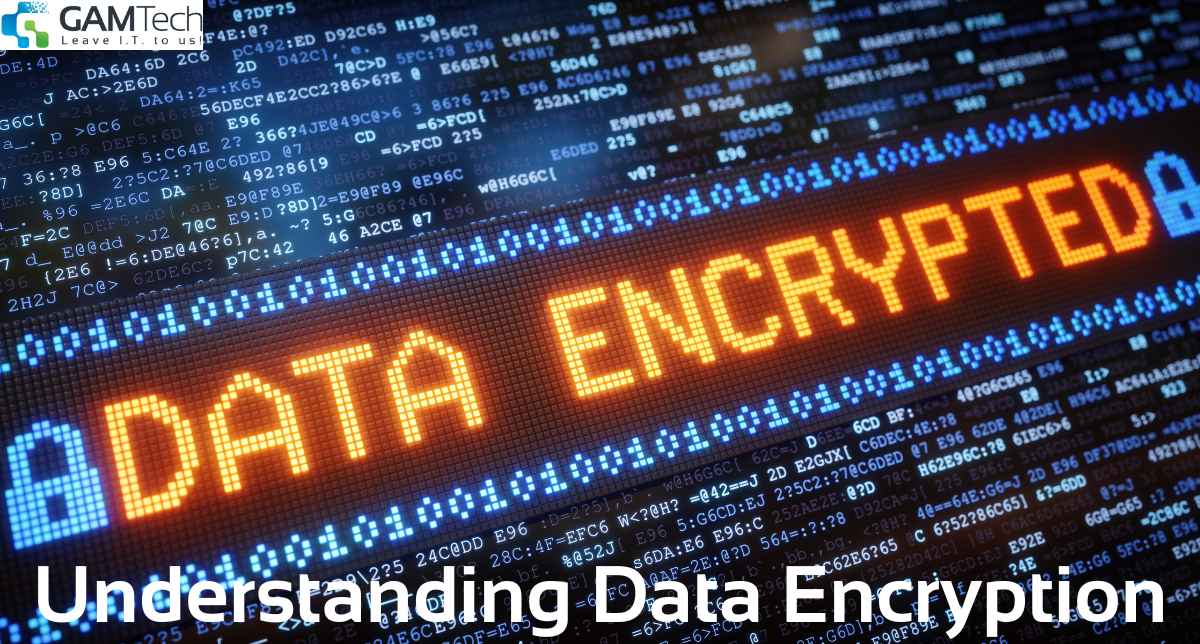Understanding Data Encryption: A Comprehensive Overview
In today's digital landscape, data security is paramount. Understanding the basics of data encryption is crucial for safeguarding sensitive...

From customer information, login credentials, to financial records, data management is a crucial element of running your business. You want authorized users to be able to access data safely and efficiently when necessary, while simultaneously protecting sensitive information and keeping cyber threats away. Data security has understandably become a primary concern for businesses of all sizes, but navigating the ever-evolving cybersecurity landscape can be challenging.
With businesses today facing a wide range of cyber threats, including data breaches, ransomware attacks, and phishing scams, weak security infrastructure can put your organization at risk of financial losses, damage to reputation, and even legal liability. Encrypting sensitive data can be used as a preventative measure to help mitigate these risks and protect businesses from cyber attacks and their consequences.
We're breaking down what encryption is and why it's one of the most effective ways to protect your business's sensitive data 👇
Used across many data management services and solutions, data encryption prevents unauthorized users from accessing confidential data by converting it into a form of code. One of the most popular methods of data security, encryption makes it virtually impossible for unauthorized parties to access sensitive information. The data can only be decrypted with the correct key or password, which only an authorized party possesses.
Data protection regulations, which vary depending on country, region, and industry, legally require businesses to protect sensitive data. Encryption is an effective way to comply with these regulations.
By using encryption technology as an added layer of security, you can have peace of mind knowing that business data will remain private. It will also help prevent data loss & leaks that may put your company or clients at risk. Some areas of data you need to protect include:
/ Financial information, such as credit card numbers and bank account information
Data breaches continue to be a major concern for businesses of all sizes. As mentioned in the previous point, data breaches can result in the loss or theft of sensitive data, including customer information, financial records, and intellectual property. Encryption is an effective cybersecurity defense against malware and ransomware, helping minimize these risks by making it extremely difficult for unauthorized parties to extract data.
Customers are increasingly aware of the need to protect their data, and businesses can respond to this demand by implementing strengthened security measures. By using encryption, businesses can show customers that they are taking the necessary steps to protect their data, which can help to increase customer trust and loyalty.
Insider threats, which involve employees stealing sensitive data or inadvertently leaking confidential information as a result of a scam, can be equally as damaging as external cyber attacks. By establishing and monitoring access controls, businesses can limit data access to specific employees who have a decryption key.
Implementing data encryption measures can seem like a daunting task for businesses, especially for smaller organizations without in-house IT expertise. Here are a few ways the a managed IT service provider can help:
Assessing Your Business's Unique Data Security Needs
An IT service provider can examine a business's data security needs to help determine which types of encryption are best suited to protect their data. This might involve evaluating the types of data a business stores, the storage method, the compliance regulations they must follow, and the highest risks and threats they face.
Developing a Security Plan
Based on an IT assessment of a business's data security needs, a service provider can develop a comprehensive security plan that includes data encryption as a key component. This plan may also include recommendations for different services, access controls, and establishing key management. Key management is an important consideration that involves creating, storing, and managing encryption keys, which are required for decrypting data. Keys should be stored securely and only authorized employees should have access to them.
Implementation and Management
Once a security plan is in place, a managed IT service provider can implement the necessary security measures, including configuring encryption software and hardware, and managing keys. They can also monitor and maintain the encryption system to ensure it is functioning properly and make updates or modifications as needed.
Around the Clock Support:
A managed IT service provider can offer 24/7/365 monitoring to ensure that data encryption systems are functioning properly. They can also respond quickly to any security incidents or issues that arise, helping to minimize any potential damage or loss.
In conclusion, data encryption is a critical component of data security for businesses. Unfortunately, cyber threats aren't going anywhere, and businesses have the opportunity to take steps to protect sensitive data through effective measures like encryption.
Cybercrime is never a question of “if,” it’s a question of “when.” Protect your business from crippling cyber attacks with the help of an accountable, reliable, responsible (and affordable), Managed IT Services provider. Book your consultation today!
Related reading:
Why Your Small Business Needs a Cyber Risk Assessment
What are Social Engineering Attacks? Prevention Tips for your Business

In today's digital landscape, data security is paramount. Understanding the basics of data encryption is crucial for safeguarding sensitive...

As more businesses move their operations and data into the cloud, cybersecurity has had to evolve. That’s where cloud security comes in. But what is...

Network security is the practice of protecting computer networks from unauthorized access, cyber threats, and data breaches through a combination of...